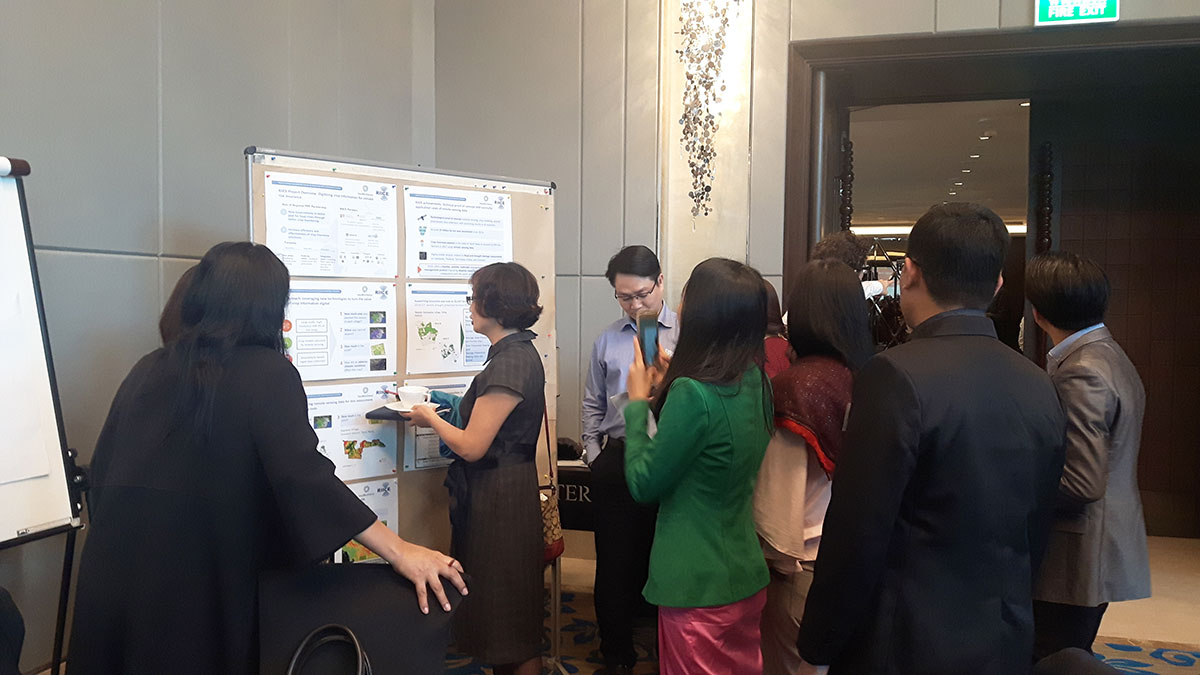
Writer: Metta Kongphan-apirak, Project Coordinator, Remote Sensing-based Information and Insurance for Crops in Emerging Economies (RIICE)
While countries in the Association of Southeast Asian Nations (ASEAN) are more exposed to natural disasters, experts believe learning best practices on disaster-risk management from global examples and experiences can help each other deals with the challenge more effectively.
Speaking at a three-day workshop entitled: “Advanced High-Level Course on Disaster Risk Finance and Insurance” on 20-22 November 2018 in Bangkok, experts from 13 countries agreed that there is no silver bullet solution to fight back and respond quickly to the challenges.
Richard Sanders, Executive Director and Head of Catastrophe Analytics, Willis Towers Watson said during his presentation “Understanding risk and vulnerability” that the single best model cannot suit every country, but the best ones can be picked up and adapted to fit each national context.
He said that the calculated data can help countries make decisions. The longer the countries wait, the more expensive finance for disaster risk transfer will be, especially if the countries are not well prepared.
Risk transfer is the process of formally or informally shifting the financial consequences of risks from one party to another. Insurance, for example, is a well-known form of risk transfer, where coverage of a risk is obtained from an insurer in exchange for ongoing premiums paid to the insurer to cope with losses after major disasters.
Source: https://www.preventionweb.net/terminology/view/7829
In this workshop, remote sensing technology combined with crop insurance scheme to reduce risks affected by disasters was introduced to 50 participants, including experts in disaster managements, finance and insurance and ministries.
The satellite can help the government make decisions to transfer risks as well as help vulnerable farmers whose crop productivities can be destroyed by extreme weather conditions like droughts, typhoons and floods, stated Metta Kongphan-apirak, Project Coordinator from “Remote sensing-based Information and Insurance for Crops in Emerging Economies” (RIICE) project.
Metta also highlighted a case from India’s Tamil Nadu State – how the government made decision regarding crop insurance set-up integrating satellite technology. It was emphasized that satellite-based crop production monitoring is an effective tool for crop insurances since the assessment of an insured event can be completed shortly after a disaster takes place. Based on this data, insurers can process claims and make corresponding payments to those farmers who have suffered damage to their crops in timely manner.
Marvin Castell, Senior Officer, Finance Integration, ASEAN Secretariat said this three-day workshop opened opportunities for ASEAN member countries to new knowledge and understanding and more trainings are needed to build capability in the near future.
The workshop was organized by the ASEAN Secretariat, SwissRe, Ministry for Economic Cooperation and Development (BMZ) through the develoPPP Programme and implemented by German International Organization (GIZ).
The aim was to raise awareness, provide guidance and enhance knowledge exchange on concrete disaster risk financing options. It also aims by working together with the participating representatives to design country roadmaps.
